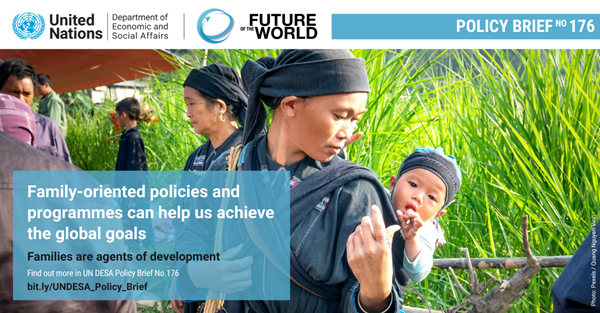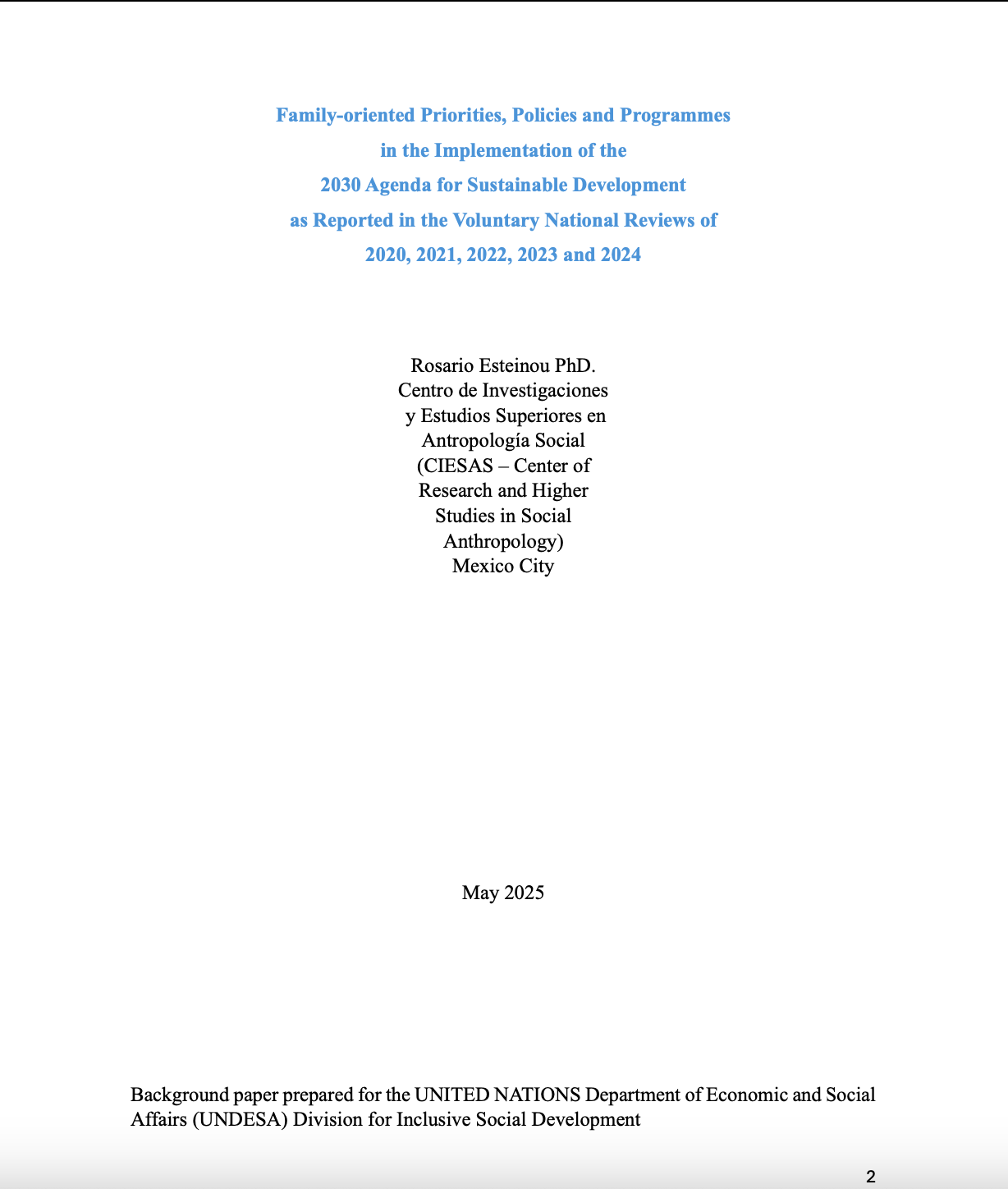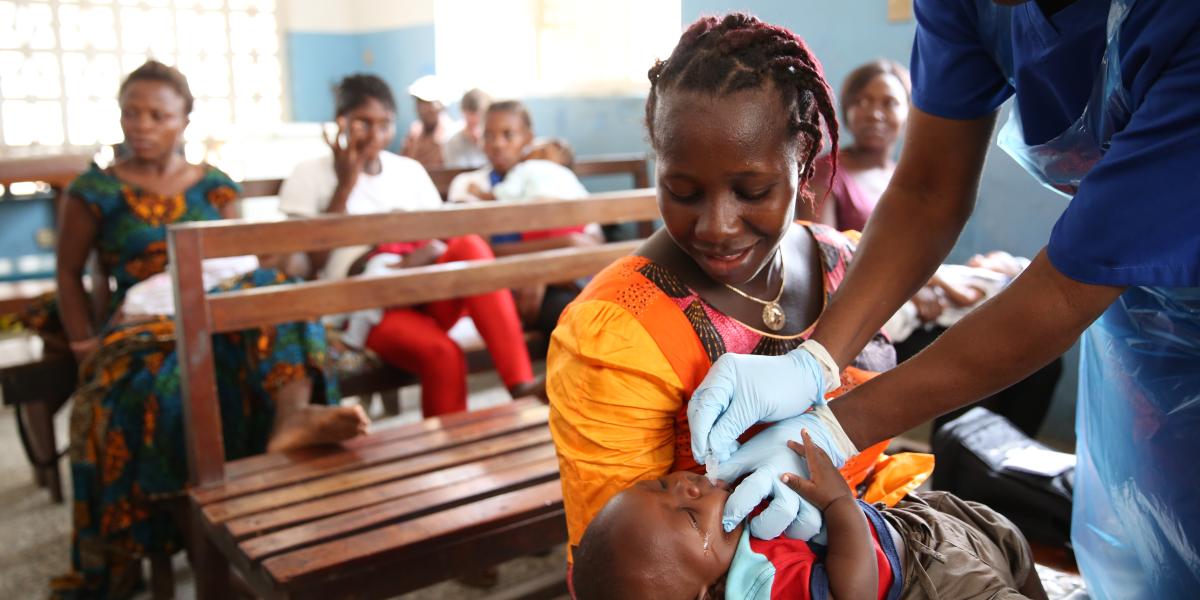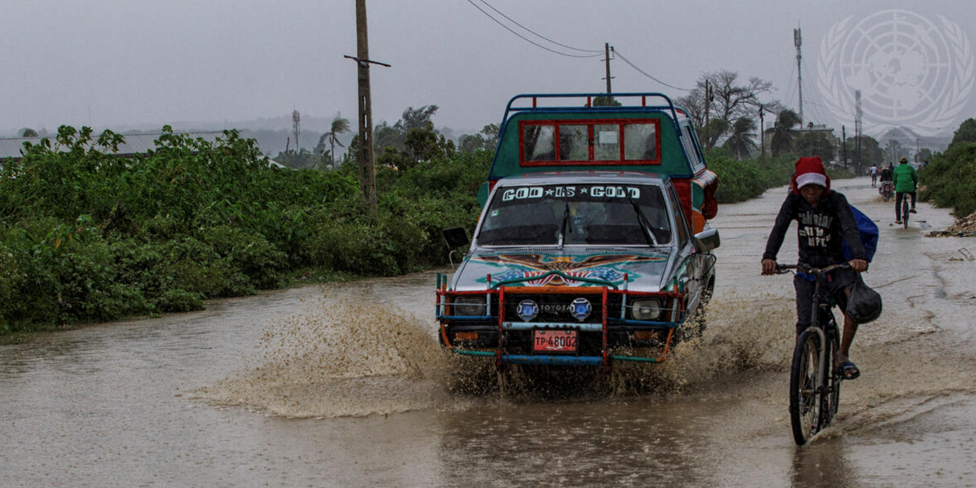Publications
Displaying 1 - 10 of 151
Policy Briefs |
This policy brief presents a global analysis of 171 Voluntary National Reviews (2020–2024) from 141 countries addressing core aspects of family well-being by focusing on policies related to: poverty reduction (SDG1), food security and nutrition (SDG2), health and well-being (SDG3), quality education (SDG4), and gender equality (SDG5). These VNRs demonstrate little and uneven progress in implementing family-oriented policies, compared to the 2016–2019 VNRs. There is modest positive progress in reducing poverty, improving maternal and child mortality, and increasing access to water and sanitation services. However, family-oriented policies addressing extreme poverty and food insecurity have…
UN ECOSOC Reports on Social Development |
Publication |
The 2025 VNR Synthesis Report prepared by UN DESA’s Division for Inclusive Social Development examines how family-oriented policies have contributed to the implementation of the Sustainable Development Goals (SDGs), based on 171 Voluntary National Reviews submitted by 141 countries between 2020 and 2024. It adopts a multidimensional analytical framework that integrates socioecological models, welfare regimes, redistributive approaches, social investment, and gender responsiveness to assess family wellbeing across key SDG areas such as poverty reduction, health, education, gender equality, and urban development. The report highlights that while families remain central to development efforts…
UN General Assembly Reports on Social Development |
As part of the preparations for and observance of the thirtieth anniversary of the International Year of the Family, the report is focused on the impact of climate change on the well-being of families, highlighting challenges relating to food and water scarcity, worsening physical and mental health, increased intrafamilial violence and child marriage.
UN General Assembly Reports on Social Development |
As part of the preparations for and observance of the thirtieth anniversary of the International Year of the Family, the report is focused on the impact of climate change on the well-being of families, highlighting challenges relating to food and water scarcity, worsening physical and mental health, increased intrafamilial violence and child marriage.
UN ECOSOC Reports on Social Development |
UN General Assembly Reports on Social Development |
Policy Briefs |
Understanding how population trends are likely to unfold in the short, medium and long terms is critical for achieving a more inclusive, prosperous and sustainable future as recognized in the Declaration on Future Generations. This policy brief provides an overview of some of the main findings of the recently released report, World Population Prospects 2024: Summary of Results (United Nations, 2024a) with the aim of helping countries prepare for population sizes, age structures and spatial distributions that may differ appreciably from those of their recent past.
ALL POPULATIONS ARE MOVING TOWARDS LONGER LIVES AND SMALLER FAMILIES
At first glance, the demographic outlook of countries…
Policy Briefs |
INTRODUCTION
The recent confluence of crises – the COVID-19 pandemic, violent conflicts, and climate change – has caused severe setbacks to central objectives of social development, such as poverty eradication, employment generation, inequality reduction, and building inclusive societies. People and societies in vulnerable situations have been hit the hardest by the converging crises.
There are indications that shocks and crises are becoming ever more frequent, severe, and far-reaching – driven by the worsening effects of climate change, the growing probability of pandemics, growing geopolitical tensions, and increasingly dense global networks of trade, finance and transport. The…
 Welcome to the United Nations
Welcome to the United Nations



